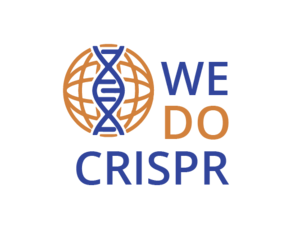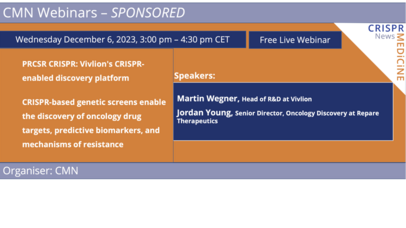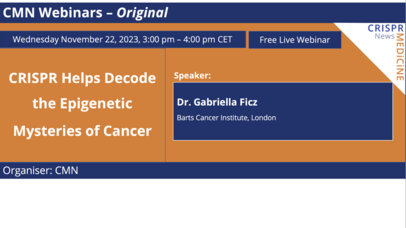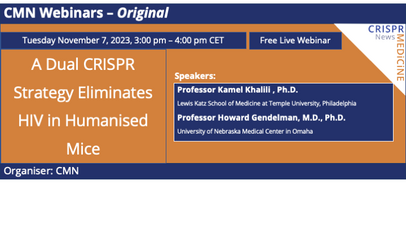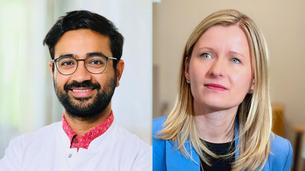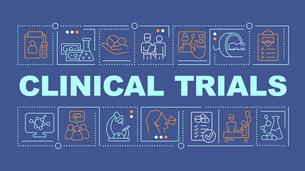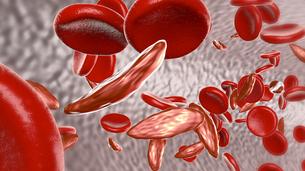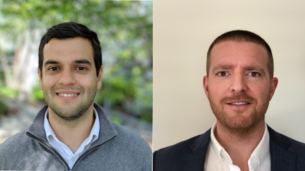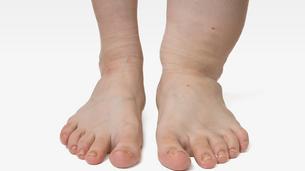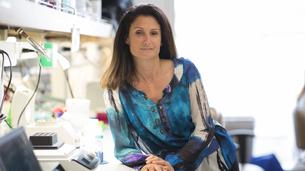Webinar
Rare Diseases & CRISPR | Wed. November 17, 2021 | 3:00 pm–4:30 pm CET / 9:00 am–10:30 am ET | Free CMN Live Webinar
On-demand Webinar is available - Follow this link
Rare Diseases & CRISPR
CRISPR-Cas is often seen as as the holy grail in medicine, with hopes that it will offer cures for for rare genetic diseases with poor or no treatment options. At CRISPR Medicine News we offer an overview of articles and trials related to Rare Diseases to provide you with some of the latest investigations in this field. Read more here.
Webinar Programme:
15.00 Welcome and introduction by CRISPR Medicine News
15.05 Eric N. Olson PhD, Professor and Chair, Department of Molecular Biology, University of Texas Southwestern Medical Center(CMN interview)
15.35 Q & A with Eric N. Olson PhD
15.45 Alessia Cavazza PhD, Group Leader and Assistant Professor in Gene Therapy at University College London (CMN interview)
16.15 Q & A with Alessia Cavazza PhD
16.25 Close by CRISPR Medicine News
Speakers/Title:
- Eric N. Olson PhD, Professor and Chair, Department of Molecular Biology, University of Texas Southwestern Medical Center- "Toward the CRISPR Correction of Muscular Dystrophy"
Alessia Cavazza PhD, Group Leader and Assistant Professor in Gene Therapy at University College London - "CRISPR-Based Correction of Rare Immune Disorder: Wiskott-Aldrich Syndrome"
Speakers
Eric Olson PhD, Professor and Chair, Department of Molecular Biology, University of Texas Southwestern Medical Center, USA
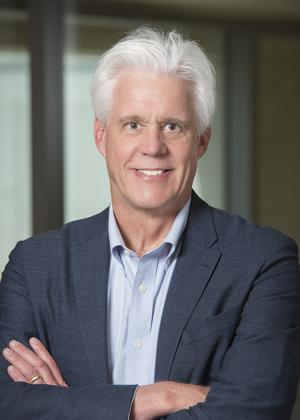
Dr. Eric Olson is the founding Chair of the Department of Molecular Biology at UT Southwestern Medical Center. He also directs the Hamon Center for Regenerative Science and Medicine and the Wellstone Center for Muscular Dystrophy Research at UT Southwestern. He holds the Robert A. Welch Distinguished Chair, the Pogue Chair Distinguished Chair in Cardiac Birth Defects and the Annie and Willie Nelson Professorship in Stem Cell Research.
Eric Olson and his trainees discovered many of the key genes and mechanisms responsible for development and disease of the heart and other muscles. His most recent work has provided a new strategy for correction of Duchenne muscular dystrophy using CRISPR gene editing.
Dr. Olson is a member of the U.S. National Academy of Sciences, the Institute of Medicine, and the American Academy of Arts and Sciences. His work has been cited over 110,000 times in the scientific literature with an h index of 190. Eric Olson has co-founded multiple biotechnology companies to design new therapies for heart and muscle disease.
We interviewed Eric Olson earlier this year about his work in correcting one of the most common DMD-causing mutations with base editing and prime editing. Read the interview with Eric Olson here.
Alessia Cavazza PhD, Group Leader and Assistant Professor in Gene Therapy at University College London, United Kingdom
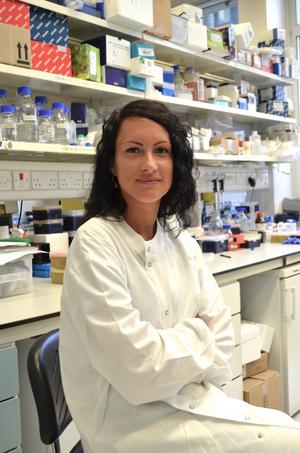
Dr Alessia Cavazza completed her PhD in Molecular and Regenerative Medicine at the University of Modena and Reggio Emilia (Italy). She has started her scientific career at the Center for Regenerative Medicine at UniMoRe, working on the development of molecular medicines based on gene therapy approaches to treat rare genetic diseases affecting children. In 2013 she moved to Boston (USA) as a postdoctoral fellow to continue her training in stem cell biology at Harvard Medical School and Dana Farber Cancer Institute.
Since 2017, Dr Cavazza has been a Lecturer in Gene Therapy at University College London (UCL). She also leads a research team focused on the development of gene editing and gene therapy platforms applied to haematopoietic stem cells to tackle rare genetic paediatric disorders affecting the immune system at the UCL Great Ormond Street Institute of Child Health. Alongside her research activities, Dr Cavazza teaches at MSc courses at UCL and is member of the editorial board of scientific journals focussed on molecular medicines.
In 2017, Cavazza started her own group in the Section for Molecular and Cellular Immunology at ICH, and within just a few years the group successfully used CRISPR to correct the gene implicated in WAS. Earlier this year, Alessia's team published work in Nature Communications, demonstrating the use of CRISPR to correct the gene implicated in the rare immunodeficiency Wiskott-Aldrich Syndrome (WAS). You can read our interview with Alessia Cavazza about that work here.
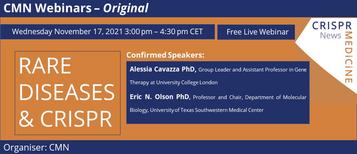
CMN Webinars - Your Gateway to CRISPR Medicine
If you have any questions or request for webinars, please contact us at: sales@crisprmedicinenews.com
Future CMN Webinars will be listed here.
Always stay updated - Sign up to weekly newsletter.
CMN Articles - CRISPR Rare Diseases

